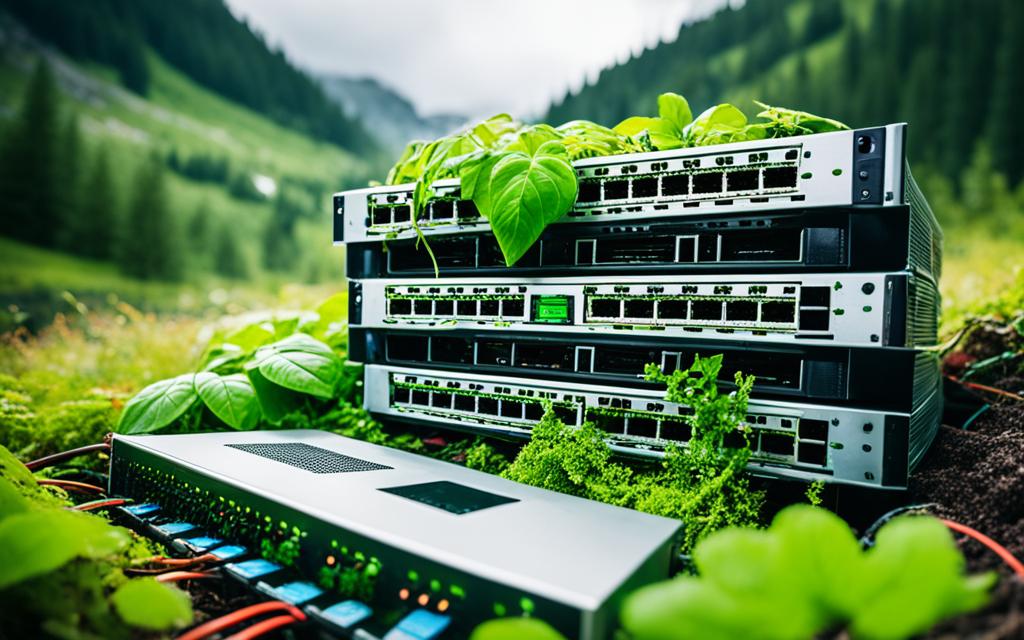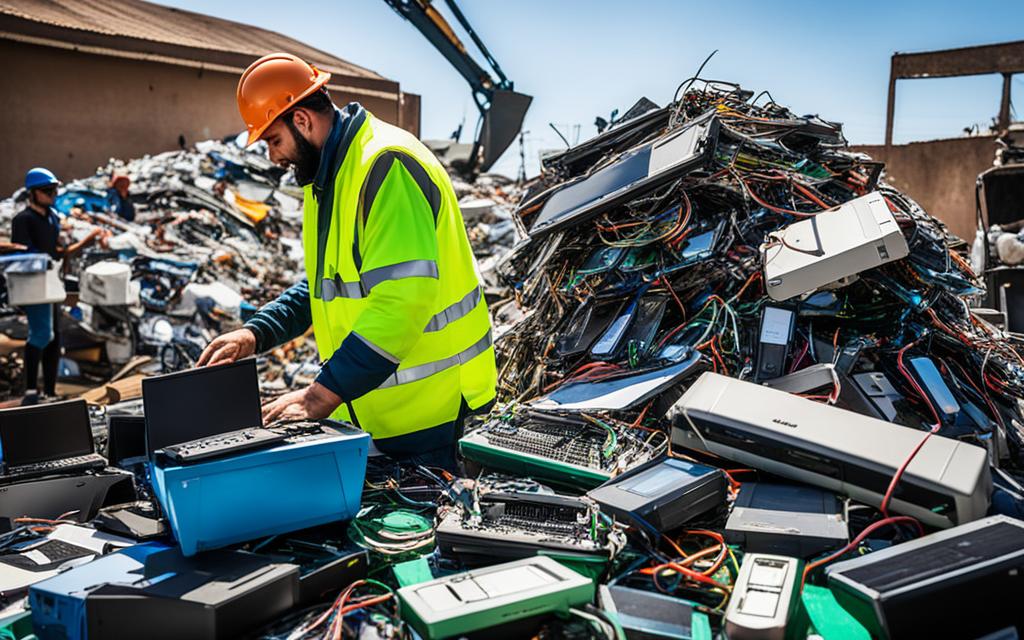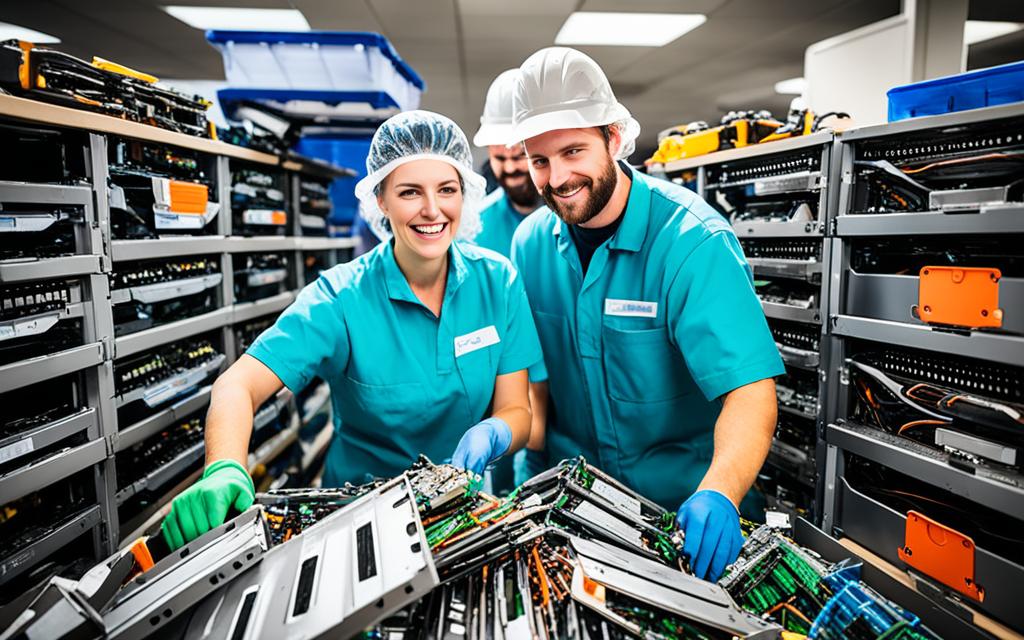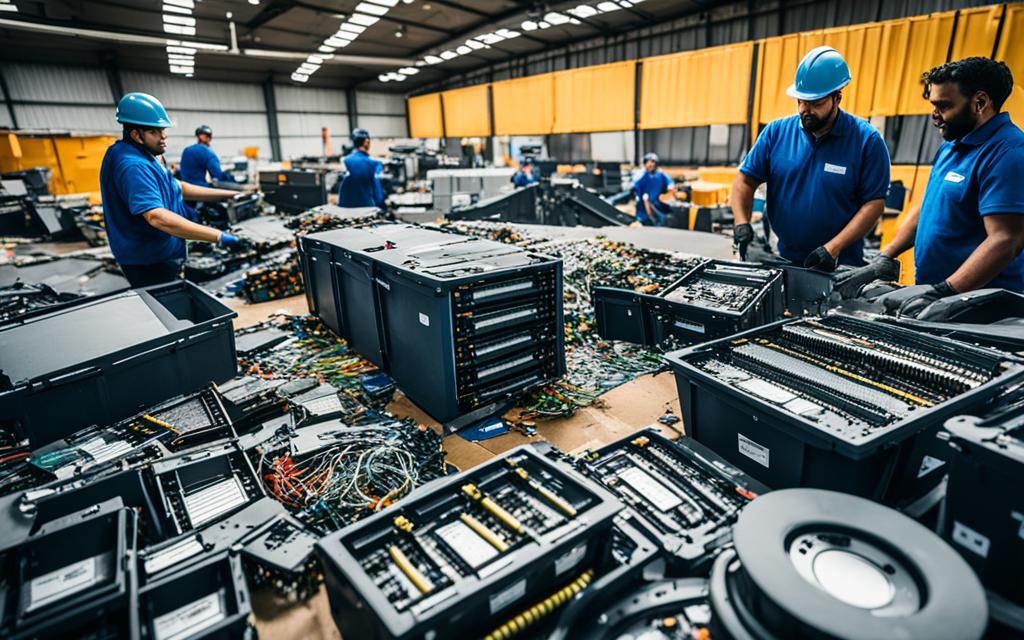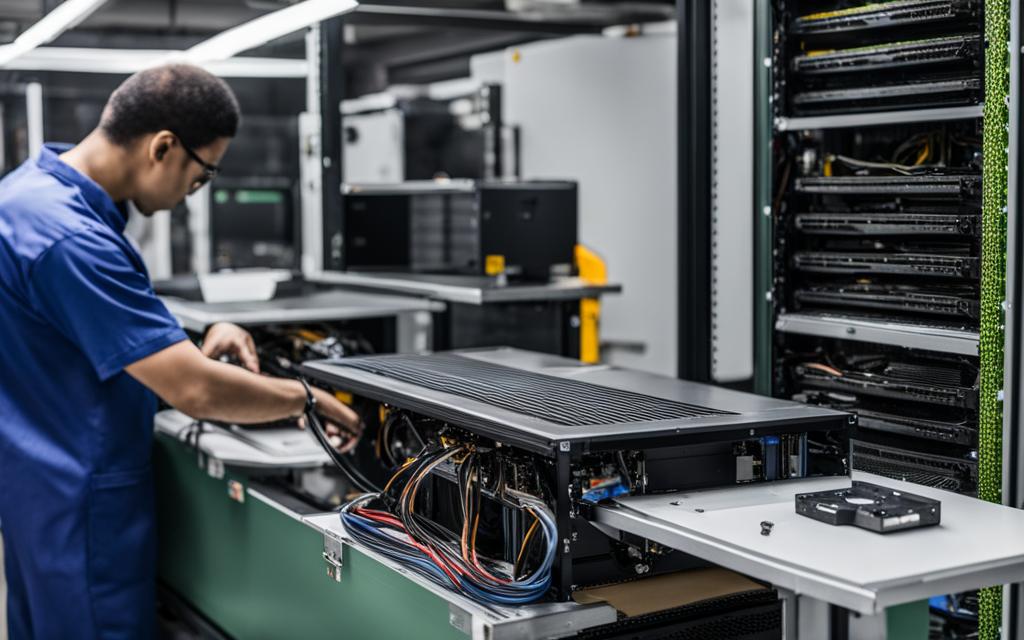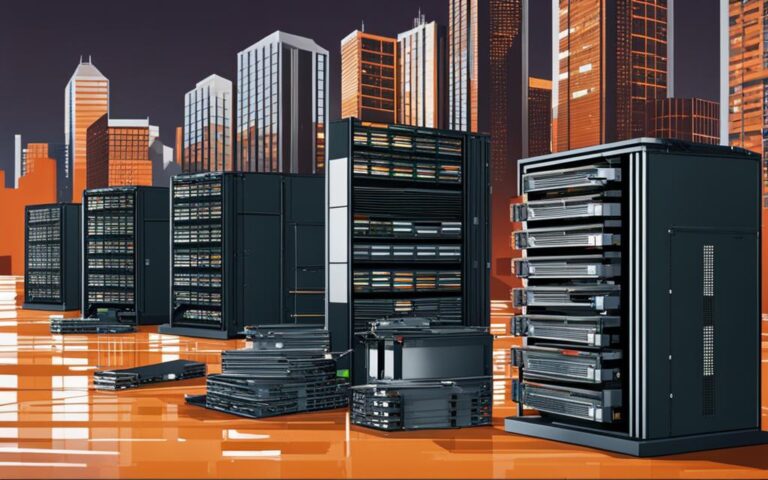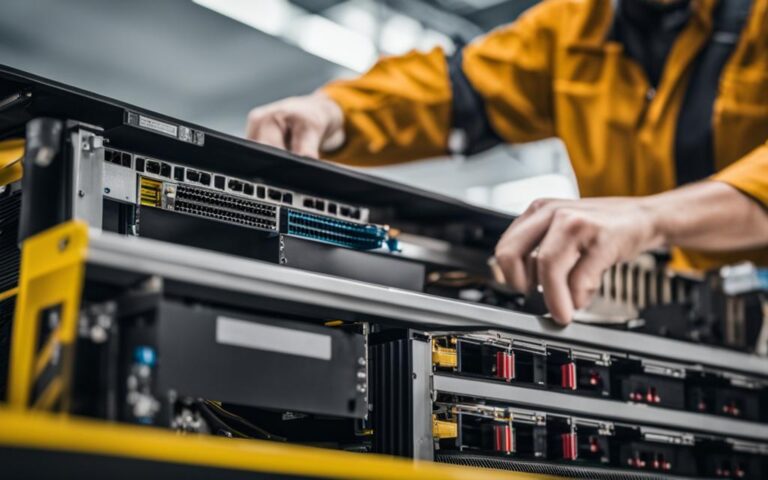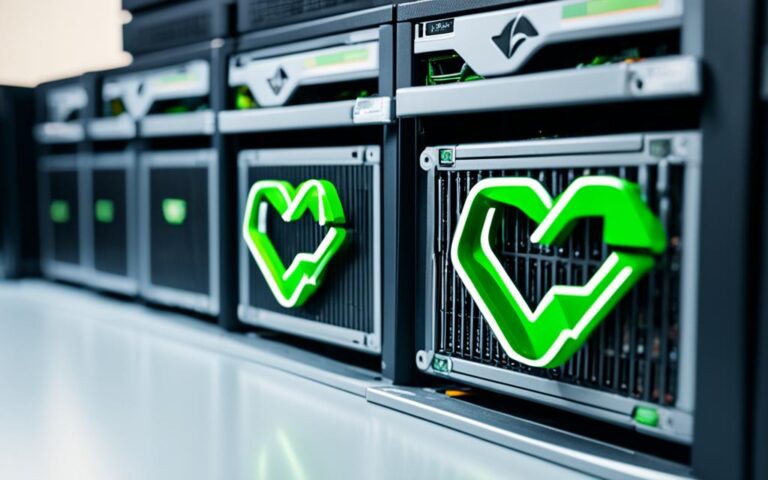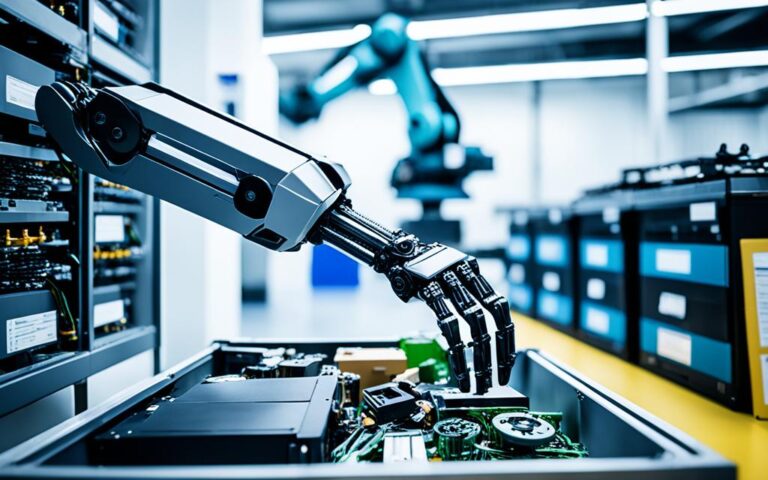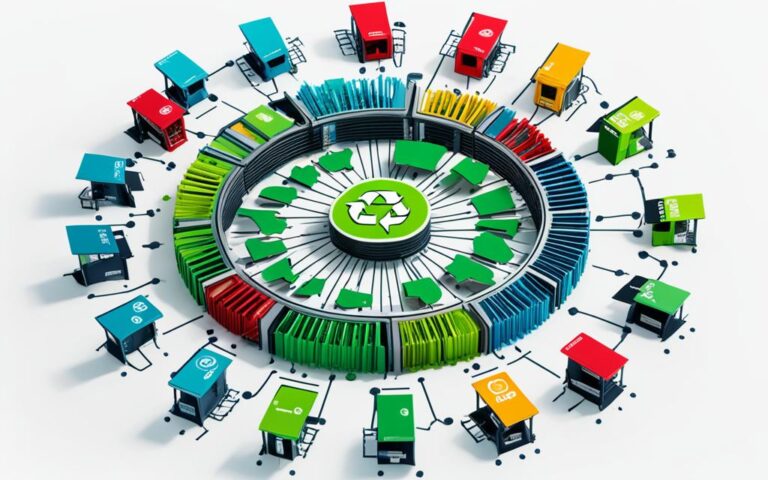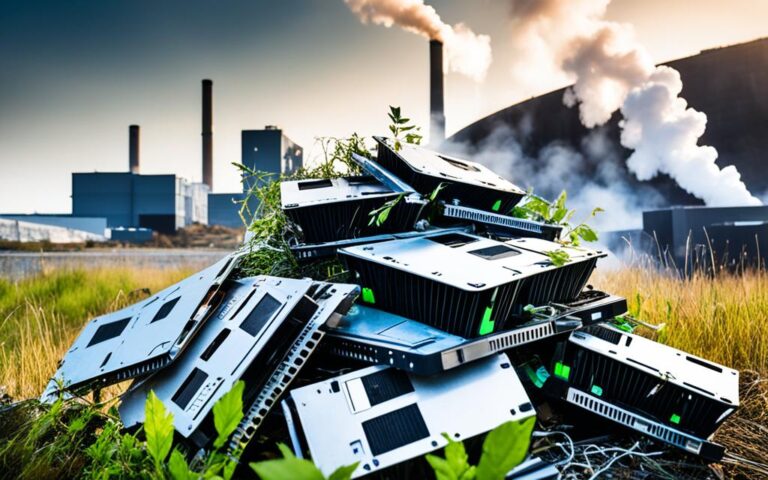The Future of Server Recycling: Trends and Predictions
In an age of rapid technological advancement, the importance of effective and sustainable server recycling methods is becoming increasingly significant. As we generate larger amounts of electronic waste (e-waste), the need for innovative solutions and trends in server recycling is more pressing than ever. This article will explore the trends and predictions shaping the future of server recycling, including the role of emerging technologies, consumer behavior, regulatory changes, and the challenges and opportunities in the industry.
The Role of Emerging Technologies in Server Recycling
In the quest for sustainable server recycling, emerging technologies are paving the way for a revolution in the field. Artificial Intelligence (AI), Blockchain, and the Internet of Things (IoT) are at the forefront of this transformation, offering innovative solutions to enhance the efficiency and accountability of the recycling process.
One of the key contributions of AI in server recycling is its ability to automate the sorting and identification of reusable or recyclable materials in electronic waste (e-waste). By leveraging advanced algorithms and machine learning, AI systems can quickly and accurately analyze the components of discarded servers, categorizing them into different streams for effective recycling. This not only saves time but also reduces the risk of human error, leading to a more efficient and resource-saving process.
Blockchain technology, most commonly associated with cryptocurrencies, also has a significant role to play in server recycling. By utilizing a decentralized and tamper-proof ledger, Blockchain can track the lifecycle of electronic components from production to disposal. This enables stakeholders, including manufacturers, recyclers, and consumers, to ensure responsible recycling or disposal practices by verifying the authenticity, origin, and destination of each component. Blockchain-based systems can promote transparency, accountability, and trust in the server recycling industry.
The Internet of Things (IoT) brings real-time monitoring capabilities to the table, further enhancing server recycling practices. Through interconnected devices and sensors, IoT can monitor the condition, performance, and usage patterns of electronic devices. This data provides valuable insights that can be used to extend the lifespan of servers, optimize resource allocation, and identify potential recycling opportunities. By employing IoT technologies, recyclers can proactively manage e-waste, reduce unnecessary disposal, and promote sustainable reuse.
“Emerging technologies such as AI, Blockchain, and IoT are transforming the server recycling landscape, helping us move towards a more sustainable future.”
The Synergy of Emerging Technologies in Server Recycling
It is important to highlight that the true potential of these emerging technologies lies in their synergy when applied together. The combination of AI, Blockchain, and IoT can revolutionize the server recycling process, offering a comprehensive and holistic solution. By integrating AI algorithms with Blockchain-enabled tracking systems and IoT monitoring devices, the entire lifecycle of servers can be monitored, optimized, and recycled responsibly.
The following table highlights the key contributions of each emerging technology in server recycling:
| Emerging Technology | Contribution to Server Recycling |
|---|---|
| Artificial Intelligence (AI) | Automates sorting and identification of recyclable materials, improves efficiency, reduces human error |
| Blockchain | Tracks lifecycle of electronic components, ensures responsible recycling or disposal, promotes transparency |
| Internet of Things (IoT) | Monitors condition of electronic devices, provides real-time data for optimization and extended lifespan |
In Conclusion, the role of emerging technologies in server recycling cannot be underestimated. AI, Blockchain, and IoT have the potential to transform the industry, offering innovative solutions to streamline the recycling process, ensure responsible practices, and contribute to a more sustainable future. By leveraging the strengths of these technologies and encouraging their adoption, we can reduce e-waste, conserve resources, and mitigate the environmental impact of discarded servers.
Consumer Behavior and Awareness in Server Recycling
Consumer behavior and awareness play a crucial role in driving the effectiveness of server recycling programs. As consumers become more aware of the environmental impact of e-waste, they are increasingly inclined to recycle their old devices and consider the sustainability credentials of brands when making new purchases. This shift in consumer behavior is likely to fuel the demand for more sustainable electronics, encouraging manufacturers to adopt greener practices and contribute to the server recycling movement.
With the rising concern for the planet’s well-being, responsible consumerism is gaining momentum. Consumers are actively seeking out products and brands that align with their values of sustainability and environmental stewardship. When it comes to electronics, consumers are becoming more conscious of the impact their devices have on the environment throughout their lifecycle.
Image:
Awareness plays a key role in motivating consumers to choose sustainable electronics and participate in server recycling programs.
Consumers are actively looking for electronic devices that are designed with recyclability in mind. They are drawn to brands that prioritize responsible manufacturing practices, use eco-friendly materials, and provide transparent information about their recycling initiatives. By making conscious choices, consumers are not only reducing e-waste but also sending a powerful message to manufacturers that sustainable practices matter.
In addition to purchasing sustainable electronics, consumers are also actively engaging in server recycling programs. They are recycling their old devices through dedicated collection points and participating in trade-in programs offered by manufacturers. This behavior shift is creating a positive impact by diverting electronic waste from landfills and enabling the recovery of valuable materials.
Benefits of Consumer Behavior Change in Server Recycling
Consumer behavior change in server recycling has far-reaching benefits. First and foremost, it helps reduce the environmental impact of e-waste by promoting responsible disposal and recycling. By extending the lifespan of electronic devices through recycling, valuable resources are conserved, reducing the need for raw material extraction.
“By making conscious choices, consumers are not only reducing e-waste but also sending a powerful message to manufacturers that sustainable practices matter.”
Moreover, when consumers choose sustainable electronics and actively participate in recycling programs, they stimulate market demand for greener products. This drives manufacturers to embrace sustainable practices, innovate their manufacturing processes, and develop technologies that prioritize recyclability and resource efficiency.
Consumer Behavior and the Impact on Server Recycling
| Consumer Behavior | Impact on Server Recycling |
|---|---|
| Preference for sustainable electronics | Encourages manufacturers to adopt greener practices and design products with recyclability in mind. |
| Participation in server recycling programs | Reduces e-waste, promotes responsible disposal, and enables material recovery. |
| Market demand for sustainable products | Drives manufacturers to innovate and prioritize recyclability in their manufacturing processes. |
The impact of consumer behavior change in server recycling extends beyond individual actions. When more consumers embrace responsible consumerism and demand sustainable electronics, it creates a shift in the industry as a whole. Manufacturers are compelled to rethink their practices and adopt more sustainable solutions, leading to a more circular economy for electronic devices.
Next, we will explore the regulatory changes and policies that are shaping server recycling and ensuring responsible e-waste management.
Regulatory Changes and Policies Shaping Server Recycling
Regulatory changes and policies are instrumental in shaping the future of server recycling. Governments around the world are enacting stricter regulations to ensure responsible e-waste management. These policies encompass guidelines on data destruction, material recovery, and disposal methods, aimed at minimizing the environmental impact of electronic waste.
Non-compliance with these regulations can result in significant fines, incentivizing companies to adopt sustainable practices in their server recycling processes. By adhering to these standards, businesses contribute to a more responsible and sustainable future.
“Effective regulatory frameworks play a vital role in driving the adoption of responsible recycling practices. By establishing clear guidelines and holding industry stakeholders accountable, governments have the power to transform the server recycling landscape.”
These regulatory changes act as catalysts for change by promoting transparency and accountability within the industry. Companies are compelled to implement proper data security measures and prioritize responsible recycling practices, safeguarding both the environment and sensitive data.
As regulatory standards continue to evolve, they create a framework that directs the server recycling industry towards more sustainable practices. By complying with these regulations, businesses can position themselves as responsible and ethical players in the market, gaining the trust and support of environmentally conscious consumers.
| Benefits of Regulatory Changes and Policies in Server Recycling | Challenges in Implementing Regulatory Changes |
|---|---|
|
|
In summary, regulatory changes and policies are vital in shaping the future of server recycling. Governments worldwide are taking proactive measures to enforce responsible e-waste management. By complying with these regulations, businesses can drive positive change, contribute to sustainability efforts, and establish themselves as responsible players in the server recycling industry.
Challenges and Opportunities in Server Recycling
Server recycling presents both challenges and opportunities as the industry strives towards a more sustainable future. Let’s explore some of these:
Data Security in Server Recycling
Data security is a crucial concern when it comes to server recycling. Ensuring the secure deletion of data is essential to prevent unauthorized access and protect sensitive information. The stakes are high, as even residual data can pose a risk. Safeguarding data during the recycling process requires strict protocols and advanced techniques to ensure complete data destruction.
Resource Scarcity in Server Recycling
Server recycling faces the challenge of resource scarcity, particularly due to the presence of rare earth elements in electronic devices. These elements, essential for the functioning of many electronic components, are becoming increasingly scarce. As the demand for electronic devices continues to rise, it’s essential to develop innovative recycling methods to recover and reuse these valuable resources.
Economic Viability of Server Recycling
Economic viability is a significant factor in driving the success of server recycling initiatives. Advancements in recycling technologies, such as machine learning and automation, offer opportunities to improve efficiency and reduce costs. As recycling processes become more cost-effective, it becomes increasingly attractive for businesses to participate in server recycling programs, ultimately contributing to a sustainable and circular economy.
“Server recycling presents challenges such as data security and resource scarcity, but it also offers economic opportunities as technology advances.”
Public Awareness and Education
One of the opportunities in server recycling lies in public awareness and education. By increasing consumer understanding about the environmental impact of e-waste and the importance of responsible recycling, we can drive significant behavioral change. Public awareness campaigns, educational initiatives, and information dissemination can empower individuals and businesses to make more sustainable choices when it comes to electronics disposal.
Emerging Technologies
Technological advancements play a crucial role in addressing the challenges and unlocking opportunities in server recycling. Innovations in machine learning, automation, and robotics enable more efficient and precise sorting of recyclable materials, increasing resource recovery rates. Advanced data management systems, such as blockchain, ensure transparency and accountability throughout the recycling process.
| Challenges | Opportunities |
|---|---|
| Data Security | Economic Viability |
| Resource Scarcity | Public Awareness and Education |
By addressing these challenges and embracing the opportunities, we can create a more sustainable and responsible approach to server recycling. The journey towards a circular economy requires the collective effort of individuals, businesses, and governments to ensure the efficient management of e-waste while minimizing environmental impact.
Conclusion: Navigating the Future Landscape of Server Recycling
The future of server recycling holds immense potential for a more sustainable and responsible approach to e-waste management. As the world becomes increasingly digital, the need for efficient and environmentally friendly server recycling practices is more important than ever. Emerging technologies like Artificial Intelligence (AI), Blockchain, and the Internet of Things (IoT) are poised to revolutionize this industry by enhancing efficiency and accountability.
Consumer behavior also plays a crucial role in driving the effectiveness of server recycling programs. With increased awareness of the environmental impact of e-waste, consumers are becoming more conscious of the brands they support and the sustainability credentials of their electronics. This shift in consumer behavior encourages manufacturers to adopt greener practices and contribute to the server recycling movement.
Regulatory changes and policies are shaping the future of server recycling by ensuring responsible e-waste management. Governments worldwide are implementing stricter guidelines on data destruction, material recovery, and disposal methods to mitigate the environmental impact of electronic waste. These regulations push companies to adopt sustainable practices and contribute to a more sustainable future.
Despite the challenges of data security and resource scarcity, there are opportunities for technological advancements and public education to make server recycling more efficient and cost-effective. Innovations in machine learning and automation can improve recycling methods, while public awareness campaigns can drive a more sustainable mindset. It is crucial for all stakeholders, from governments and businesses to consumers, to actively participate in shaping a more sustainable future for server recycling and mitigate the environmental impact of e-waste.
FAQ
What is server recycling?
Server recycling refers to the process of reusing or disposing of servers and other electronic components in a responsible and environmentally friendly manner. It involves dismantling, sorting, and recycling server hardware to recover valuable materials while minimizing the impact on the environment.
Why is server recycling important?
Server recycling is important because it helps to reduce electronic waste (e-waste) and minimize the harmful effects of improper disposal. It also allows for the recovery of valuable materials, such as precious metals and rare earth elements, which can be reused in the production of new electronic devices.
How does AI contribute to server recycling?
AI, or Artificial Intelligence, can automate the sorting and identification of reusable or recyclable materials in e-waste. By using advanced algorithms, AI systems can accurately identify different components of servers and separate them for proper recycling or disposal, improving the efficiency and effectiveness of the recycling process.
What is the role of Blockchain in server recycling?
Blockchain technology can play a crucial role in tracking the lifecycle of electronic components, ensuring responsible recycling or disposal. By creating an immutable record of the entire supply chain, including the origin and destination of server hardware, Blockchain provides transparency and accountability in the recycling process.
How does IoT contribute to server recycling?
IoT, or the Internet of Things, can monitor the condition of electronic devices in real-time, providing valuable data to extend their lifespan. By collecting information on the performance and maintenance needs of servers, IoT devices can help in identifying when a server needs repair or if it can be repurposed, reducing the need for premature disposal.
How does consumer behavior impact server recycling?
Consumer behavior and awareness play a crucial role in driving the effectiveness of server recycling programs. As consumers become more aware of the environmental impact of e-waste, they are increasingly inclined to recycle their old devices and consider the sustainability credentials of brands when making new purchases, encouraging manufacturers to adopt greener practices.
How do regulatory changes shape server recycling?
Regulatory changes and policies are key drivers in shaping the future of server recycling. Governments worldwide are implementing stricter regulations to ensure responsible e-waste management. These policies include guidelines on data destruction, material recovery, and disposal methods. Non-compliance can result in hefty fines, pushing companies to adopt more sustainable practices.
What are the challenges in server recycling?
Server recycling comes with challenges such as data security, where secure data deletion is crucial to prevent unauthorized access. Resource scarcity is also a challenge, as electronic devices often contain rare earth elements that are becoming increasingly scarce. However, technological advancements offer opportunities to improve recycling methods, and public awareness campaigns can drive consumer behavior towards more sustainable practices.
What are the economic opportunities in server recycling?
Server recycling presents economic opportunities as recycling processes become more cost-effective with technological advancements. Recovering valuable materials from servers can contribute to a circular economy, where these materials are reused in the production of new devices. Additionally, responsible server recycling practices can help companies build a positive brand image and gain a competitive advantage in the market.
How can I contribute to server recycling?
You can contribute to server recycling by responsibly disposing of your old servers and electronic devices at designated recycling centers or through authorized recycling programs. Additionally, you can choose to purchase electronic devices from brands that prioritize sustainability and responsible recycling practices, encouraging the industry to adopt greener methods.


